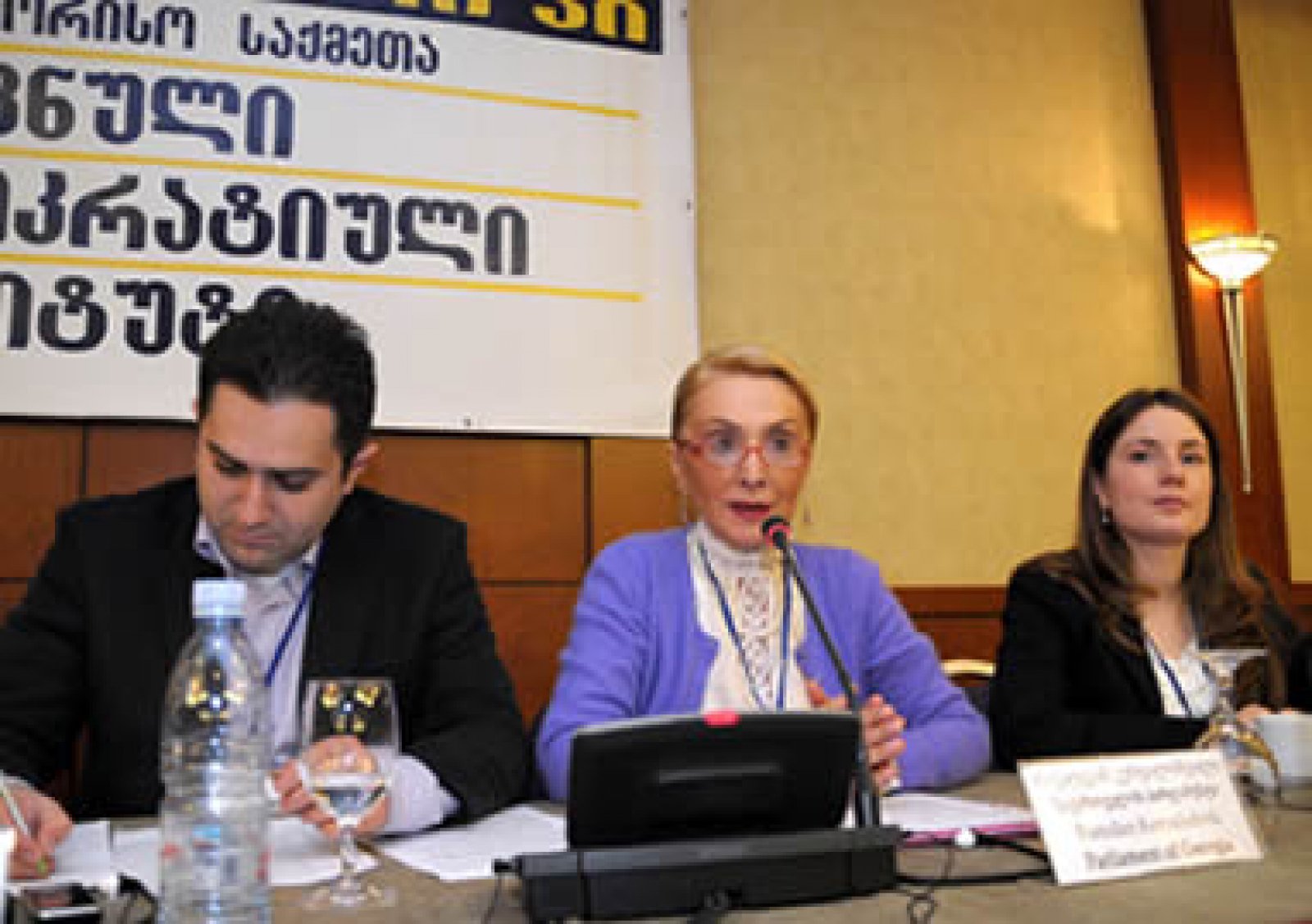
SHARE
"Georgian women cannot wait another century for equal participation in the governance of our country," said Leila Aptsiauri, a member of a local city council in Georgia. She was speaking at a conference in Tbilisi, the capital, where representatives from 11 political parties discussed with civil society leaders the benefits to including more women on candidate lists and in political party leadership structures.
At the day-long meeting in May, the parties presented their strategies for electing more women to higher office. For example, the ruling United National Movement shared its plan to establish a gender equality department inside the party that would, among other things, work to increase activism by women members and identify women parliamentary candidates. A Christian-Democratic Movement representative talked about having a woman lead the party list in the May 30 local elections, guaranteeing that at least one woman from the party would hold office. Our Georgia-Free Democrats, a newly-established party, pledged to pay special attention to equal representation of women as they continue to build their party structure.
Currently, women make up 6 percent of the parliament, which was elected in 2008, a drop of almost half from the previous parliament.
The political parties also signed the Win with Women Global Action Plan, an NDI document with practical recommendations to help political parties become more inclusive of women. Recommendations in the plan range from ensuring the physical safety of women party activists, candidates and elected officials to maintaining a database of women qualified for elected and appointed political positions.
The meeting was attended by more than 100 participants, including members of parliament, government officials, the diplomatic corps, and representatives of domestic and international non-governmental organizations. It was moderated by NDI and funded by the Swedish International Development Cooperation Agency.
The participants discussed existing levels of women's participation in elected bodies, challenges facing women in running for office and state mechanisms aimed at increasing gender equality. At the opening of the conference, Rusudan Kervalishvili, deputy speaker of the parliament and chair of its Gender Equity Council, discussed Georgia's Law on Gender Equality, a statute that enhances women's security, equality in the workplace and ability to participate freely in politics. The law was introduced by Kervalishvili and passed in April.
"We call upon the parties to not stop at just this pledge, but to continue working toward greater gender equality," said Laura Jewett, regional director for Eurasia at NDI, who was a keynote speaker at the conference.
The parties signing the Win with Women Global Action plan were the Christian-Democratic Movement, the Democratic Party of Georgia, the Georgian Group, the National Council, the National Democratic Party, the New Rights Party, Our Georgia - Free Democrats, the Republican Party of Georgia, the Way of Georgia, Topadze - Industrialists and the United National Movement.
Related content:
- Burkina Faso: strengthening women's political participation at the local level»
- Initial signatories to the Global Action Plan»
- The Global Action Plan is now available in 14 languages»
Published July 1, 2010


